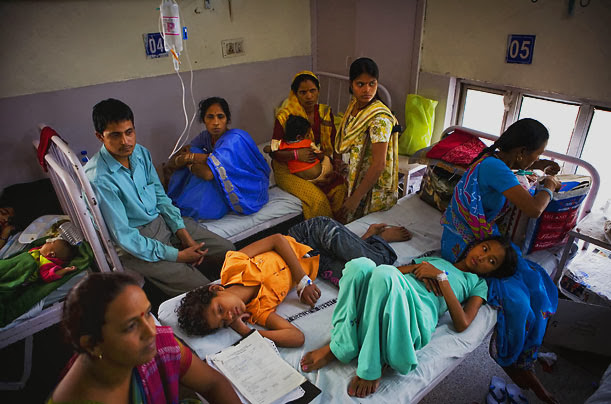BlackBerry's canny healthcare play in India


A week or so ago, I wrote about Blackberry’s emerging gambit—namely, morphing from a handset manufacturer to a service provider, especially in a fast-approaching era of the Internet of Things (IoT). The IoT, as you probably know, is being touted as the next gazillion dollar business opportunity for technology companies.
A few days ago, Blackberry's IoT play further crystallized when it announced the imminent launch of a wired healthcare service in India thanks to the technical prowess of a company that it recently invested in—US-based healthcare technology firm NantHealth. This could become not just an important play for Blackberry but be a pioneering effort that shakes up the healthcare arena in India (and even the world), a landscape that is in dire need of support here thanks to the millions of underserved patients who either don’t have access to health facilities or don't have the funds to pay for their treatment—which is pretty much most of the country.
This service could not only increase coverage but also bring down costs by offering a service that plugs into thousands of medical devices that can detect illnesses at an early stage. Apparently NantHealth's platform has already shown its promise, having been installed at some 250 hospitals globally, while connecting more than 16,000 medical devices that have collected more than 3 billion vital signs annually.
Using 'QNX,' Blackberry's crown jewels
In 2010, Blackberry snapped up Ottawa, Ontario firm QNX, dubbed by its CEO Chen as one of Blackberry’s 'Crown Jewels'. After becoming a critical component of how much of the world interacts with its automobile’s digital entertainment and information system, QNX will now provide the same crucial interface in the healthcare arena.
QNX, as Larry Dignan's ZDNet article explains, is basically an operating system that serves as middleware for your auto entertainment system with special expertise in connecting to your mobile device. For instance, CarPlay is one of the world's popular in-car infotainment system that allows iPhone users to jack in and make phonecalls, play tunes and use navigation tools and it solely uses QNX as a platform to do so. But the same QNX OS can also be deployed in anything from your washing machine to a heart monitor—so you can imagine how critical this can become in the IoT arena.
Grafting QNX onto Nanthealth's systems and having it ride on a secure network such as BBM could be nothing short of ingenious and if QNX has emerged as the dominant middle OS for much of the world's leading entertainment (Apple) and automobile companies, there's no reason why it can't weave the same magic in the healthcare field.
In India, patients, especially those in remote areas, can now be monitored by an urban hospital's medical staff thanks to QNX's real-time embedded OS. The Nanthealth-QNX-BBM package can now deliver secure, cloud-based delivery and payment systems along with critical decision making that rides on data and analytics—a combination that may democratize healthcare from being just a privilege of the rich in India but also make it more efficient and cheaper.
This solution could soon become, not just a cool innovation, but a vital necessity for a country with a seemingly unending healthcare crisis such as India's.